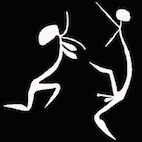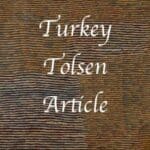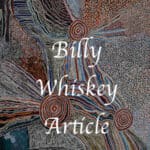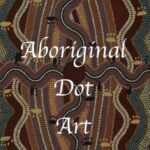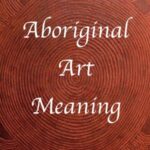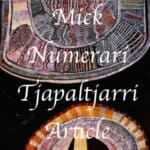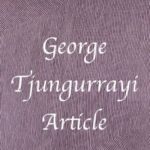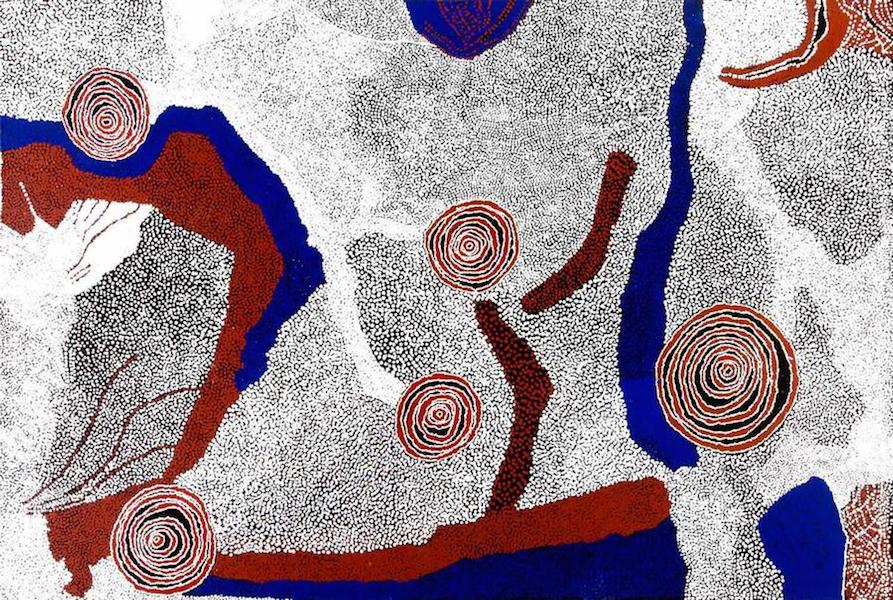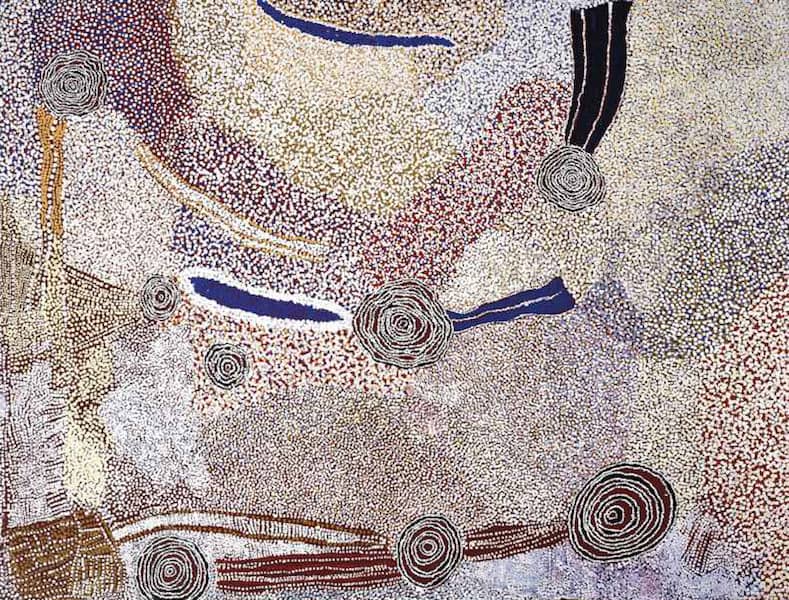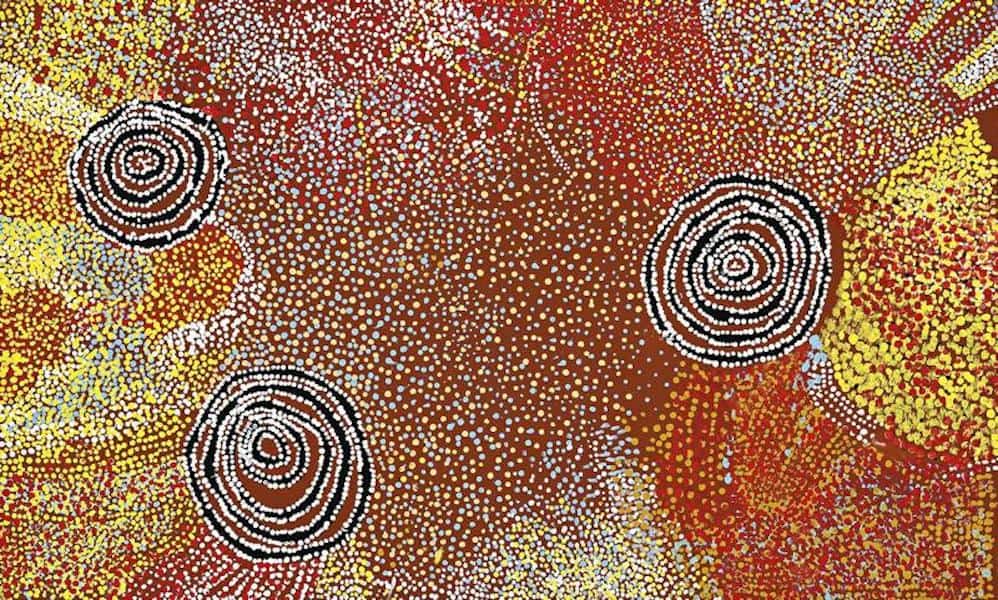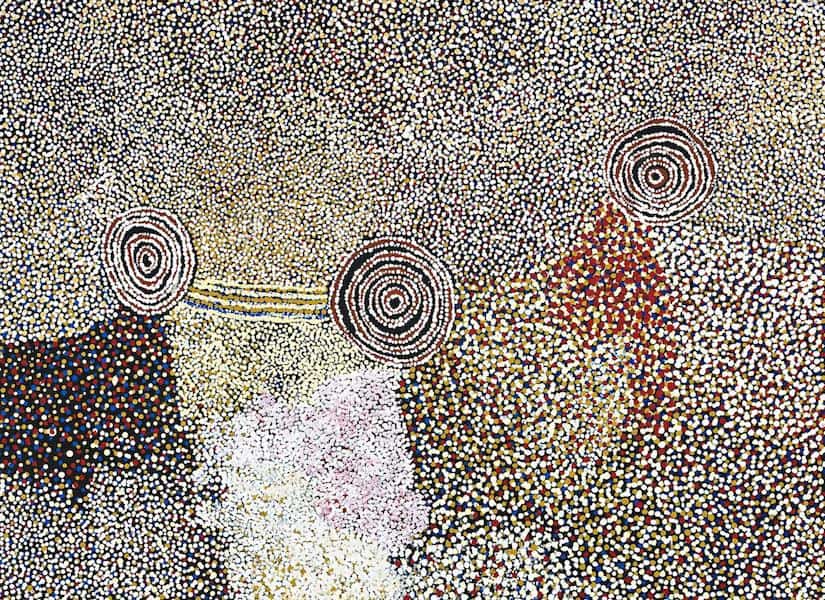Billy Whiskey: Master of Pitjantjatjara
Billy Whiskey a Pitjantjatjara elder did not start painting until 2004 when he was in his eighties. He only painted his stories for four years before he died. He was the first artist to paint the sacred stories of the Pitjantjatjara people.
Billy Whiskey began creating his finely dotted, colourful canvases in 2004 when already in his mid 80s.
His paintings are bright intense and full of life and spiritual background.
The aim of this article is to assist readers in identifying if their Aboriginal painting is by Billy Whiskey. It compares examples of his work. It also gives some background to the life of this fascinating artist.
If you have a Billy Whiskey Aboriginal painting to sell please contact me. If you want to know what your Bill Whiskey painting is worth please feel free to send me a Jpeg. I would love to see it.
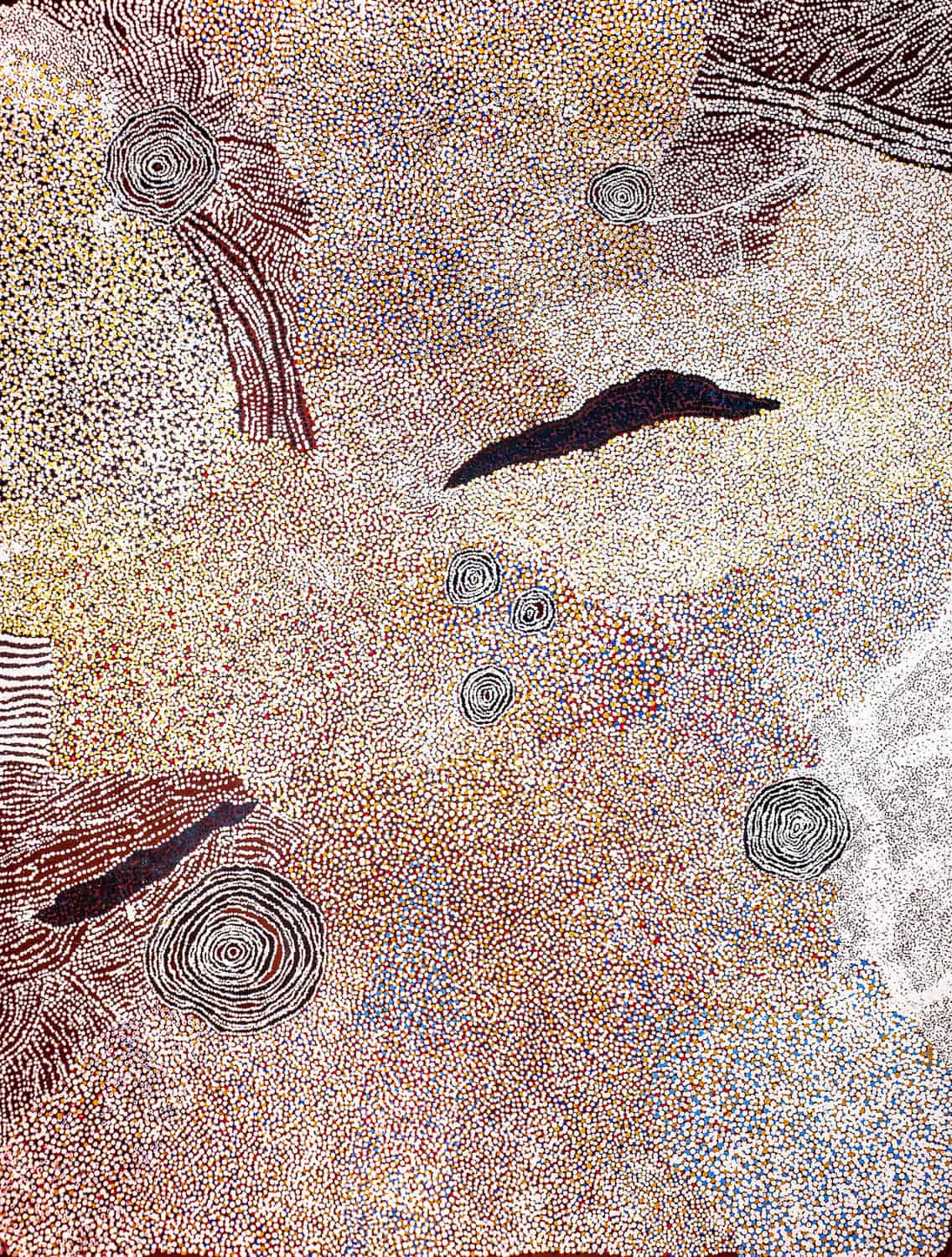
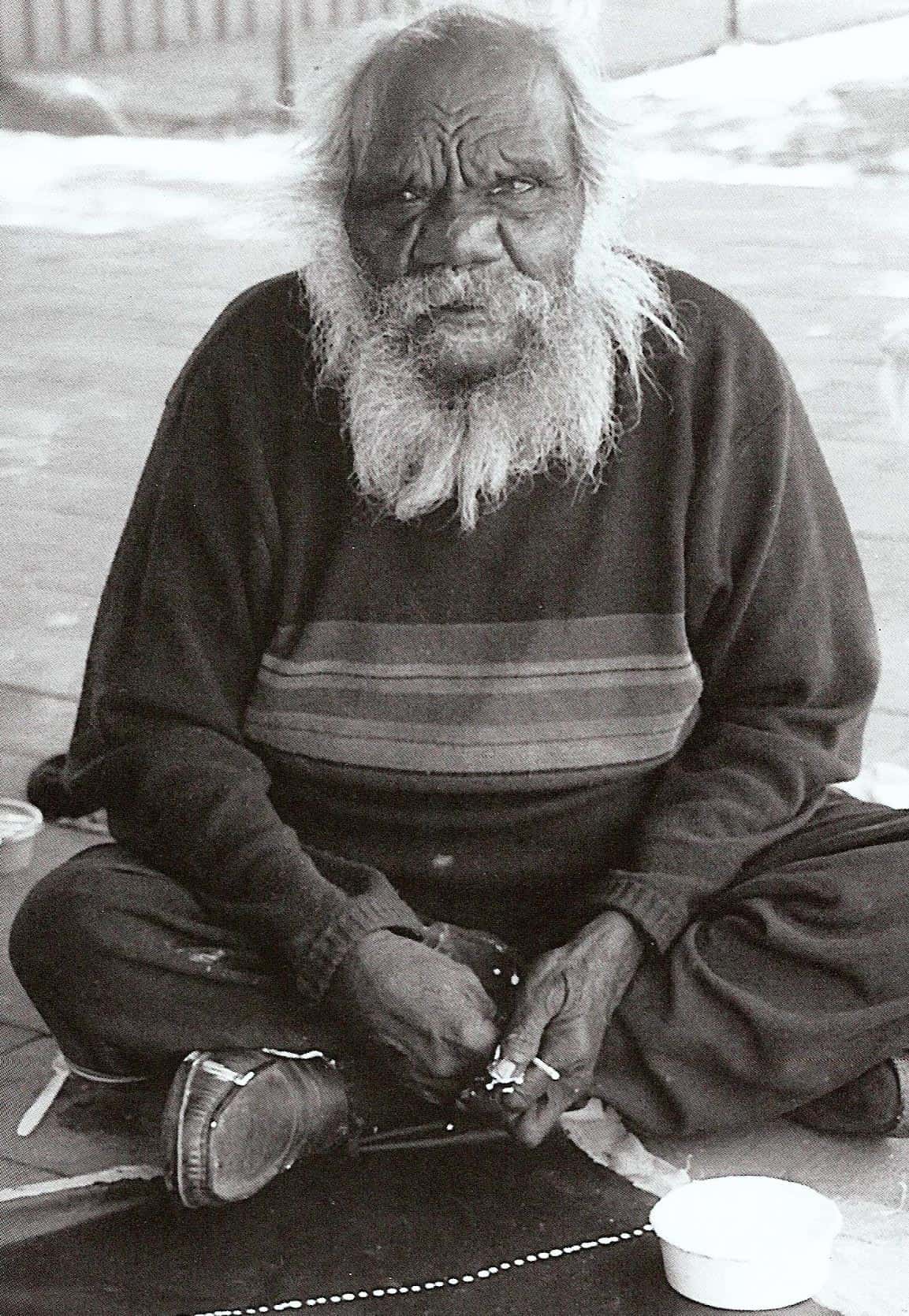

Billy Whiskey Life
Billy Whiskey was born in near Pirrulpakalarintja outstation 130 km south of the Olgas (Kata Juta) a stunning rock formation. His family group in search of food and water, moved to Ayers Rock (Uluru) while he was still adolescence. Later Billy returned to his tribal land with his family after their first contact with white people ended in conflict. He and his family lived a traditional nomadic tribal existence until he was a young man. Again due to food and water shortages he and his family walked 250 kilometers to Haasts bluff mission Billy Whiskey who was still very cautious of Europeans decides not to stay at Haasts Bluff. Instead, he traveled onto Areyonga where a white missionary Pastor called Patupirri had established a camp. It was here that Billy first tasted European food and lost his fear of Europeans. After a few years, Billy traveled back to Haasts Bluff and settled at the mission. It is here he met and married Colleen Nampitjinpa, a Luritja woman with whom he eventually had five children. In the 1980s Billy and his family moved to Mt. Liebig (Amunturungu) They settle at Mt. Liebig and were well known as skilled healers (ngangkari), and for their traditional knowledge and authority. It was not until Billy was well into his 80’s that he began to paint. Billy Whiskey was a custodian of the cockatoo dreaming and this was the subject of many of his artworksThe cockatoo dreaming
Dreamings are aboriginal religious creation stories handed down through the millennia. These stories often explain why the landscape is as it is. It describes how your Alcheringa spirit arrived in a certain area. Billys dreaming comes from his conception place Pirupa Alka. The ancestral story involves three Dreamtime birds: the white cockatoo, his friend the eagle, and an aggressive black crow. The crow attacked the cockatoo to steal his witchetty grubs. A terrible battle ensued between the birds and white feathers scattered about and the landscape. The earth indented by the entangled birds crashing to the ground time after time. A large circular amphitheater created by the sweep of wings. The cockatoo was saved by his friend the eagle who chased away the crow. The eagle then tried to save his friend and brought scraps of kangaroo meat for the injured cockatoo to eat. This epic Dreamtime story accounts for the geographic features around Pirupa Alka.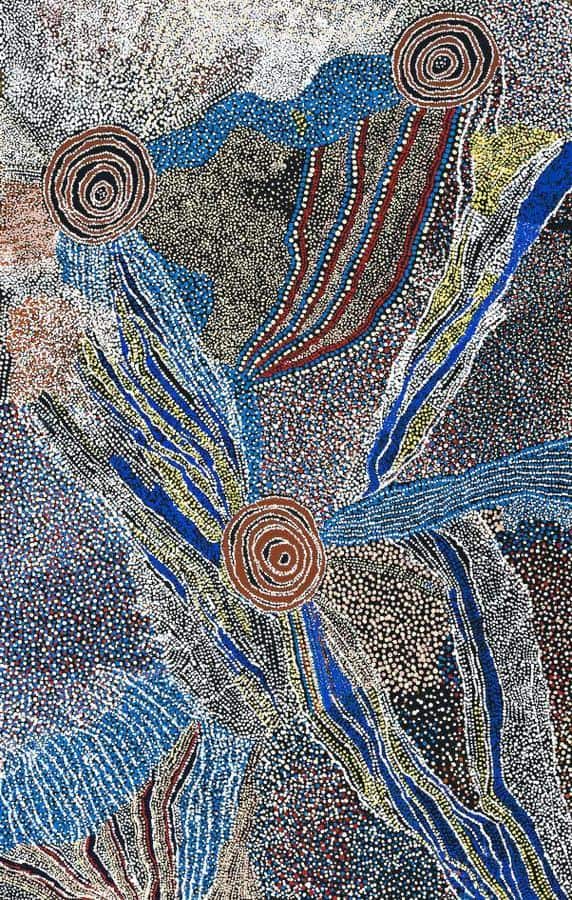
Billy Whiskey paintings
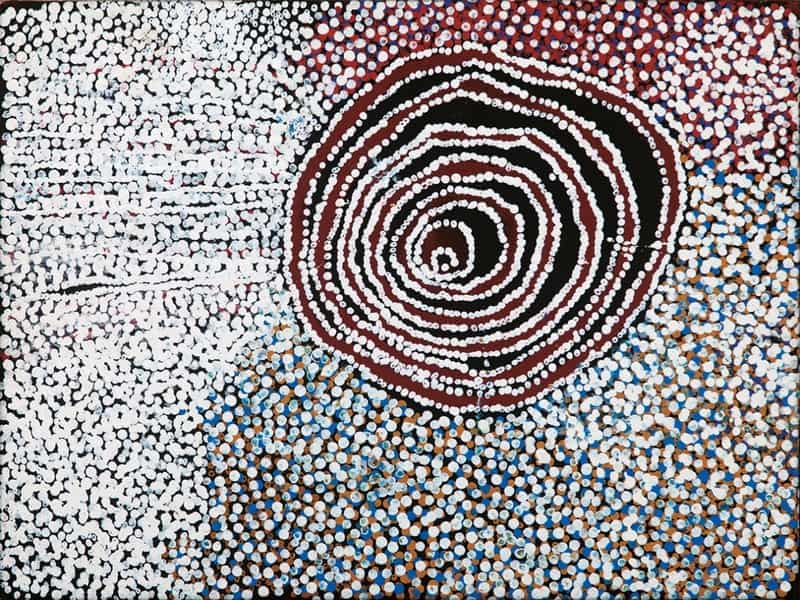
Billys works usually have between 1 and 5 concentric circles which are irregular in shape. These circles surrounded by areas of structured dot infill.
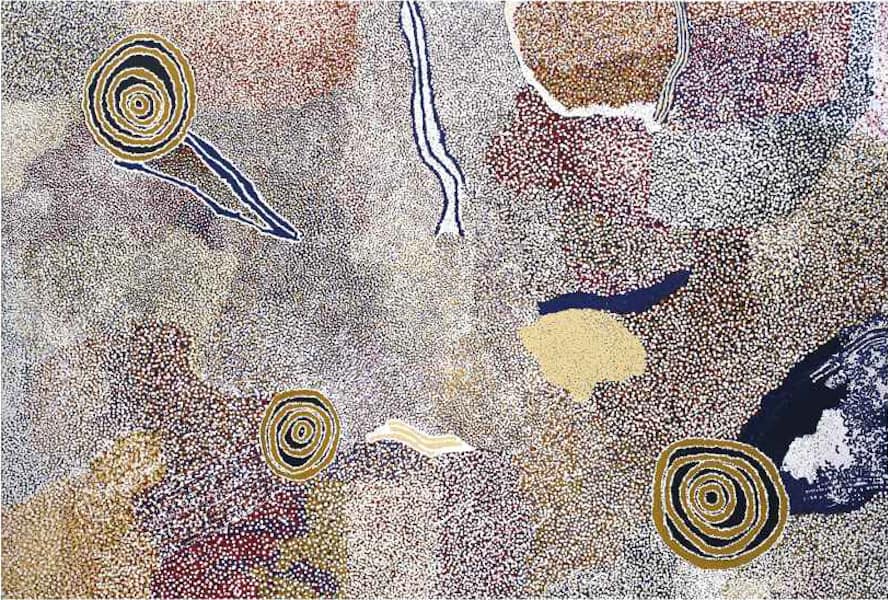
His color palette is colorful blues, yellows, reds, and greens but usually, he tempers these colors with white.
He tempered the colors with white out of respect of the cockatoo spirit. Billy rarely uses any blocks of color but if he does it will be blue.
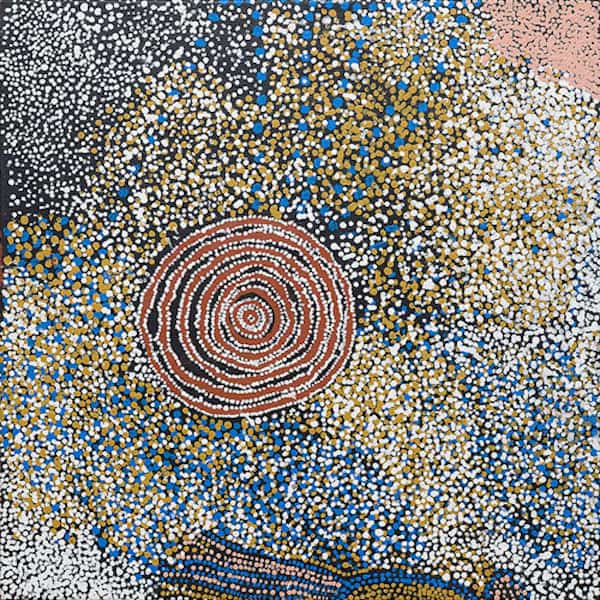
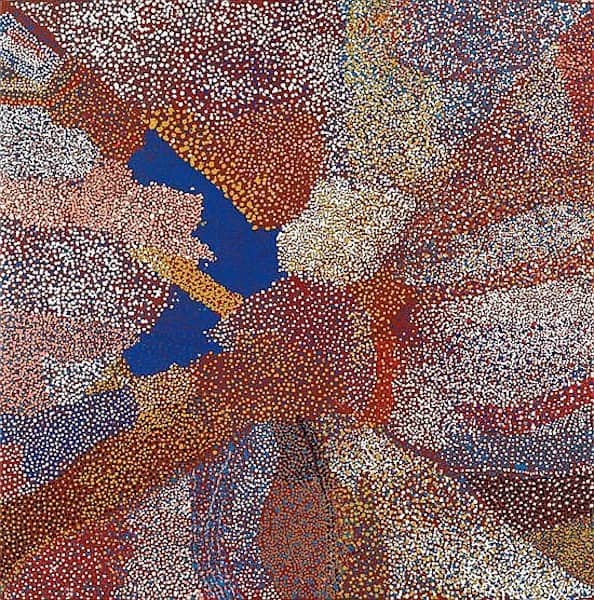
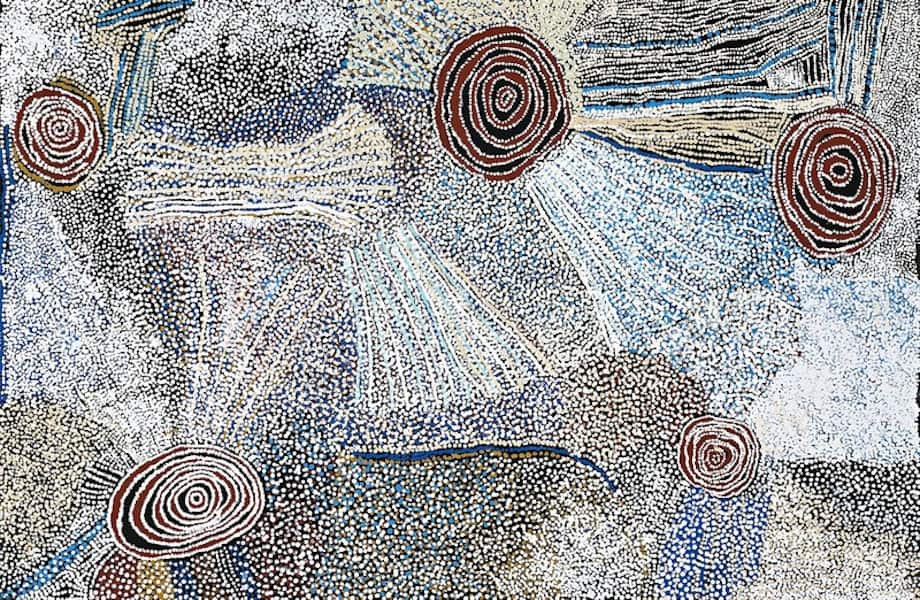
When looking at Billy’s art you can feel the underlying structure. These underlying designs of his dreaming but they are never quite revealed. Areas to important to show covered in dot work that both blend the sacred symbols and structure while defining spaces.
It is this ability to both reveal and conceal the mythic landscape and sacred geography that I feel best defines his best works.
Bill Whiskey did not drink and he did not smoke. His name actually came from his earlier nickname whiskers. His painting career started 30 years later than Papunya artists like Kaapa or Johnny but his work has the same spirit. His sensitivity and knowledge as a powerful healer and authority as a keeper of sacred knowledge shine through in his art.
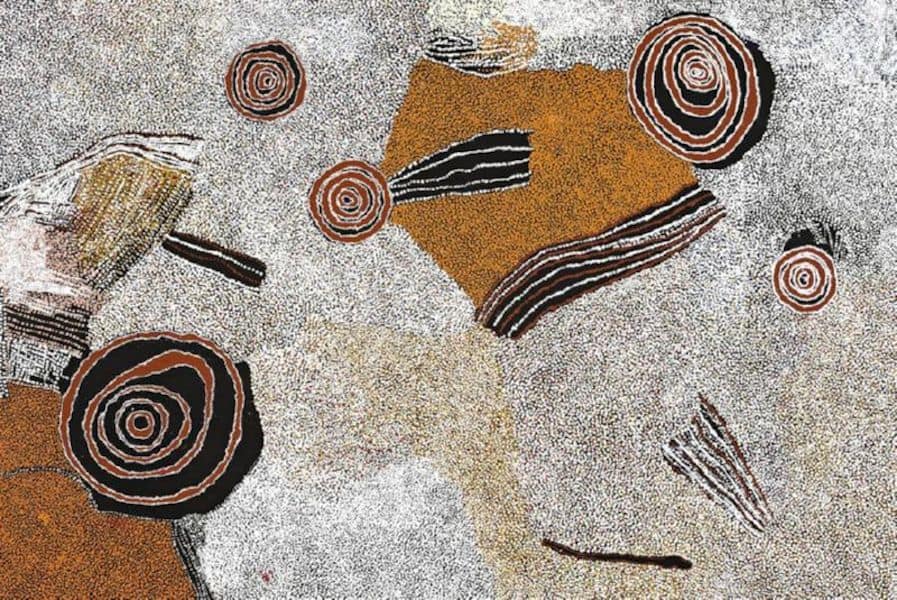
All images in this article are for educational purposes only.
This site may contain copyrighted material the use of which was not specified by the copyright owner.
Other Aboriginal Art and Artists
Billy Whiskey Images
The following images of the Artworks of Billy Whiskey are not a complete list of his works. They do however give a good idea of the style and variety of this Aboriginal Artist.
If this post has been informative please take the time and make the effort to share it on social media. By clicking any of the share buttons below you create a link from your social site to this article. Links are what google uses to calculate what information on the web is useful. By sharing this article you are letting google know you found my article / images of some value. Thanks!
